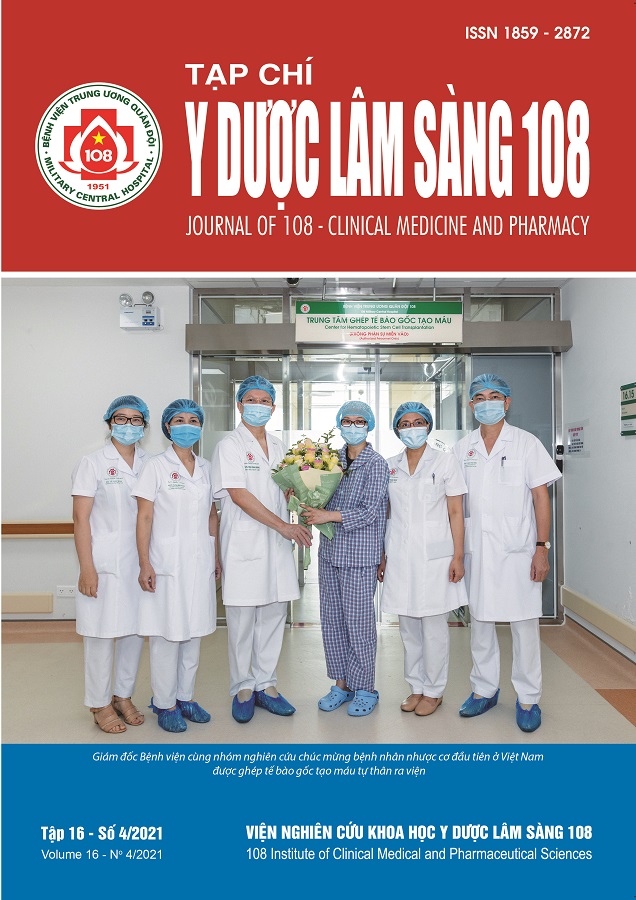Factors related to nurses’ emphathy: A survey in 2021
Main Article Content
Keywords
Abstract
Objective: This study was conducted to describe empathy and selected relating factors among nurses at some hospitals located in the Mountain North. Subject and method: In this cross-sectional descriptive study, 125 nurses who participated in a training course on communication skills provided by Thai Nguyen Central Hospital, were interviewed by a self-administered questionnaire. The survey consists of 12 questions, constituting a total score of 36. The higher score reflects a higher level of empathy. Result: The mean score of empathy was 21.6 (± 2.5), equivalent to the average empathy level. The study showed a statistically significant difference between the empathic ability of nursing groups working in different departments (p<0.05). However, no significant differences were found between age, work position, experience with communication courses, and number of patients contacted per day groups. Conclusion: Nurses demonstrate a moderate level of empathy. There is a need to improve this ability among nurses. Further studies to explore roles of factors affecting this empathy among nurses are recommended
Article Details
References
2. Trần Thị Hằng Nga và Nguyễn Thị Minh Chính (2018) Đánh giá hoạt động giáo dục sức khỏe của điều dưỡng Bệnh viện Đa khoa tỉnh Quảng Trị và một số yếu tố liên quan, năm 2018. Khoa học Điều dưỡng, 1(03), tr. 28-34.
3. Mirella Castelhano et al (2019) How to measure the empathy level of undergraduate nurrsing students? An integrative review. Texto & Contexto - Enfermagem. 28.
4. Hojat M et al (2018) The Jefferson Scale of Empathy: A nationwide study of measurement properties, underlying components, latent variable structure, and national norms in medical students. Adv Health Sci Educ Theory Pract 23(5): 899-920.
5. Kim J (2018) Factors influencing nursing students' empathy. Korean J Med Educ 30(3): 229-236.
6. Moudatsou M et al (2020) The role of empathy in health and social care professionals. Healthcare (Basel) 8(1).
7. Christina Ouzouni and Konstantinos Nakakis (2012) An exploratory study of student nurses' empathy. Health Science Journal 6(3): 534-552.
8. Parkin T, de Looy A and Farrand P (2014) Greater professional empathy leads to higher agreement about decisions made in the consultation. Patient Educ Couns 96(2): 144-150.
9. Reynolds W, Scott PA and Austin W (2000) Nursing, empathy and perception of the moral. J Adv Nurs 32(1): 235-242.
10. Spreng RN et al (2009) The Toronto Empathy Questionnaire: Scale development and initial validation of a factor-analytic solution to multiple empathy measures. J Pers Assess 91(1): 62-71.
11. Sanghee Yeo and Kyong-Jee Kim (2021) A validation study of the Korean version of the Toronto empathy questionnaire for the measurement of medical students’ empathy. BMC Medical Education 21(1): 119.
 ISSN: 1859 - 2872
ISSN: 1859 - 2872
